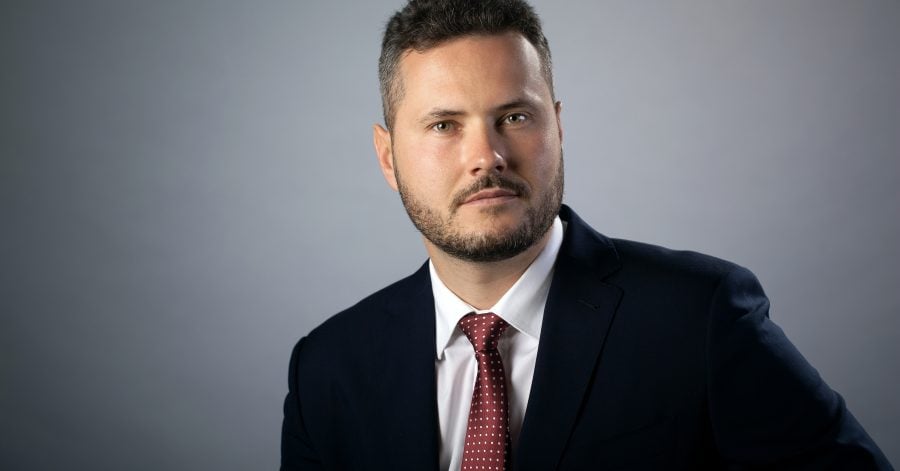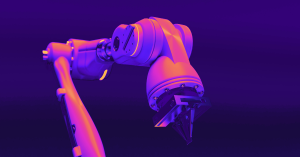Restart Energy, an independent electricity and natural gas supplier in Romania and Serbia, based in Timisoara, has launched Restart Energy Democracy (RED) – a blockchain-based platform that aims to facilitate carbon offsets. All the actions regarding CO2 offsets – from green energy production to reducing food waste or using electric cars, are exchanged for tokens and sustainability certificates by users and energy producers and registered on the blockchain.
The sustainability-focused spinout makes sense for Restart Energy, as they aim to improve their own sustainability footprint by increasing their renewable energy production capacity by 100MW yearly and to 500 MW in 2026. Last year
“At approx. 40 billion tons of CO2 emissions per year, we get about 5 tons CO2 per person globally. Carbon is traded today at prices between $20 per tone for voluntary projects and $70 per tone inside the EU Emissions Trading System. That means carbon is a big business. If we take an average of $50 per ton of Co2, that’s a whopping $2 trillion market.
Our goal is to help people and organizations become aware of their carbon footprint and give them the tools and opportunity to monetize their positive actions and participate in this trillion dollar market,” shares with The Recursive Armand Domuta, CEO and owner of Restart Energy One, part of Armand Group.
The RED platform is based on a blockchain technology derived from Ethereum, called Zalmoxis, under the Restart Energy brand. It works on Proof of Stake (PoS) and Proof of Authority (PoA) consensus mechanisms that allow network validators to make transaction approvals with less energy-intensive processes.
Carbon offsets powered by blockchain
When it comes to decarbonizing the economy and transitioning to clean energy sources, we can use all the help we can get. There are countless success stories highlighting the role of incentives and rewards in persuading economic actors into making or speeding up changes.
The RED platform wants to bring together different stakeholders seeking sustainable solutions and products and help them interconnect for mutual benefit. Through the exchange of tokens between energy producers and users interested in CO2 offsets, the platform aims to add simplicity, transparency, and accessibility to centralized CO2 offset systems.
And while the topic of using carbon emissions offsets to improve environmental footprint is controversial, the company proposes it as an alternative to taking no action.
So, how does it work? Individuals and businesses can calculate their corresponding CO2 emissions with exactity and register CO2 offset purchases in the blockchain. Purchases are made in the form of tokenized carbon credits, which can be used to purchase green energy. Companies can further obtain green tokens for their customers who decide to use products with environmental benefits, in the form of QR codes printed on the products or receipts.
On the other side of the equation, renewable energy producers can register their energy production, receive green certificates of origin (REO-G tokens), and sell these green certificates to users interested in offsetting their CO2 footprint and showing their support towards renewable energy production.
According to the EU Origin Guarantees standards, one REO-G token for producers means the equivalent of 750 kg of CO2 emission savings. For consumers, owing 1 GTK token means 1 kg in offset CO2 emissions. Consumers whose suppliers are already on the RED platform automatically receive the corresponding tokens.
What other green actions are rewarded? In addition to green energy purchases, users can register other environmental actions aimed at carbon offsetting and receive GTK tokens. These actions include food waste reduction, planting trees, or using electric vehicles.
The next level: A tokenized franchise business system
“It’s an important project for us and we have a growing team dedicated to this exclusively. Short term, we are focusing on developing new partnerships in the sustainability field, as well as initiating new corporate solutions. It’s a segment with great potential and we’ll put our efforts into bringing new projects on the platform and offer carbon certificates,” adds Armand Domuta.
Furthermore, RED opens up the opportunity for users to acquire a tokenized franchise for a certain amount of MWAT – RED’s proprietary cryptocurrency. Franchises will allow their partners to offer services to potential customers by tokenizing any type of business process, contract, artistic creation, or information.
The platform offers four types of franchises, based on size and quantity of MWAT demanded. There is also a limited number of franchises per country – 1 franchise for every 10K inhabitants.
Franchise owners will earn a monthly income based on the consumption of the customers they bring. RED will own 50% of the MWAT in exchange for the right to run the franchise. The operator receives one V-LEC token for the payment and 50% of the owned MWAT in staking rights.
As a next step, the company aims to create a liquid market for NFT unique tokens that are linked to sustainability projects and can further incentivize participation in decarbonization.








